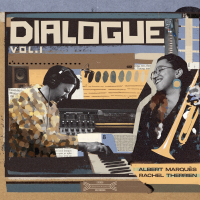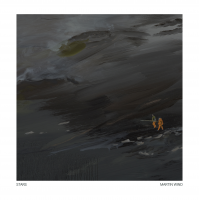Home » Jazz Articles » Album Review » Hank Jones: Hanky Panky
Hank Jones: Hanky Panky
But 441 Records' Harvey Rosen created the subsidiary Test of Time Records to reissue many of East Wind and Inner City's best recordings in remastered form, yielding a veritable bonanza of new discovery for American audiences. In this, the imprint's first year, he's already released nearly a dozen titles, including Jones' The Great Jazz Trio and releases by Art Farmer, Andrew Hill, and Sheila Jordan.
The three Great Jazz Trio releases, culled from a three night run in 1977 at the Village Vanguard, found Jones stretching out liberally with bassist Ron Carter and drummer Tony Williams. But the precedent for the trio's modus operandi was already established in 1975 with Jones' Hanky Panky—a trio disc with Carter and drummer Grady Tate combining well-heeled standards with songs from contemporary composers, including Jones himself. While The Great Jazz Trio tended towards lengthy exploration, Hanky Panky represents a more concise view; the majority of the album's nine tracks are at or under the five-minute mark.
Looking back, it's curious that Carter—a member of Miles Davis' groundbreaking 1960s quintet with Herbie Hancock, Wayne Shorter, and Williams—chose to stay more closely aligned with the jazz mainstream, rather than following the fusion direction of his ex-bandmates. But that needn't imply any kind of complacency, as Carter's warm, resonant tone and imaginative musical choices—for example, the way he viscerally slides into phrases—combine with his intuitive sense of swing to make even often-covered tunes like "Oh, What a Beautiful Morning" groove in a unique and evocative way. And on more contemporary material like Sara Cassey's minor blues "Wind Flower, Carter solos with lyrical and graceful economy.
Why Tate isn't spoken of in the same breath as Elvin Jones, Art Blakey, and Max Roach is a mystery. Fourteen years Jones' junior, he's got a discography almost as large, having played with everyone from Jimmy Smith to Wes Montgomery, Stan Getz, and Stanley Turrentine, equally capable of the gently funky swing of "Nothin' Beats an Evil Woman as the heartfelt balladry of "Warm Blue Stream.
Jones is as elegant here as always. While totally steeped in the mainstream, he manages to buck convention in the subtlest of ways, which is why, at 87, he's still in such high demand. By continuing to absorb the ever-evolving language of jazz, he remains at once contemporary and timeless. Hanky Panky, like Woody Shaw's recently-reissued Stepping Stones, is what the mainstream should be. Familiar? Yes, but with a sense of adventure that retains a freshness and undeniable sense of discovery.
Track Listing
Nothin' Beats an Evil Woman; Warm Blue Stream; Confidence; Wind Flower; Minor Contention; Favors; As Long as I Love; Oh, What a Beautiful Morning; Hanky Panky.
Personnel
Hank Jones
pianoHank Jones: piano; Ron Carter: bass; Grady Tate: drums.
Album information
Title: Hanky Panky | Year Released: 2005 | Record Label: Test of Time Records
Tags
PREVIOUS / NEXT
Support All About Jazz
 All About Jazz has been a pillar of jazz since 1995, championing it as an art form and, more importantly, supporting the musicians who make it. Our enduring commitment has made "AAJ" one of the most culturally important websites of its kind, read by hundreds of thousands of fans, musicians and industry figures every month.
All About Jazz has been a pillar of jazz since 1995, championing it as an art form and, more importantly, supporting the musicians who make it. Our enduring commitment has made "AAJ" one of the most culturally important websites of its kind, read by hundreds of thousands of fans, musicians and industry figures every month.






















